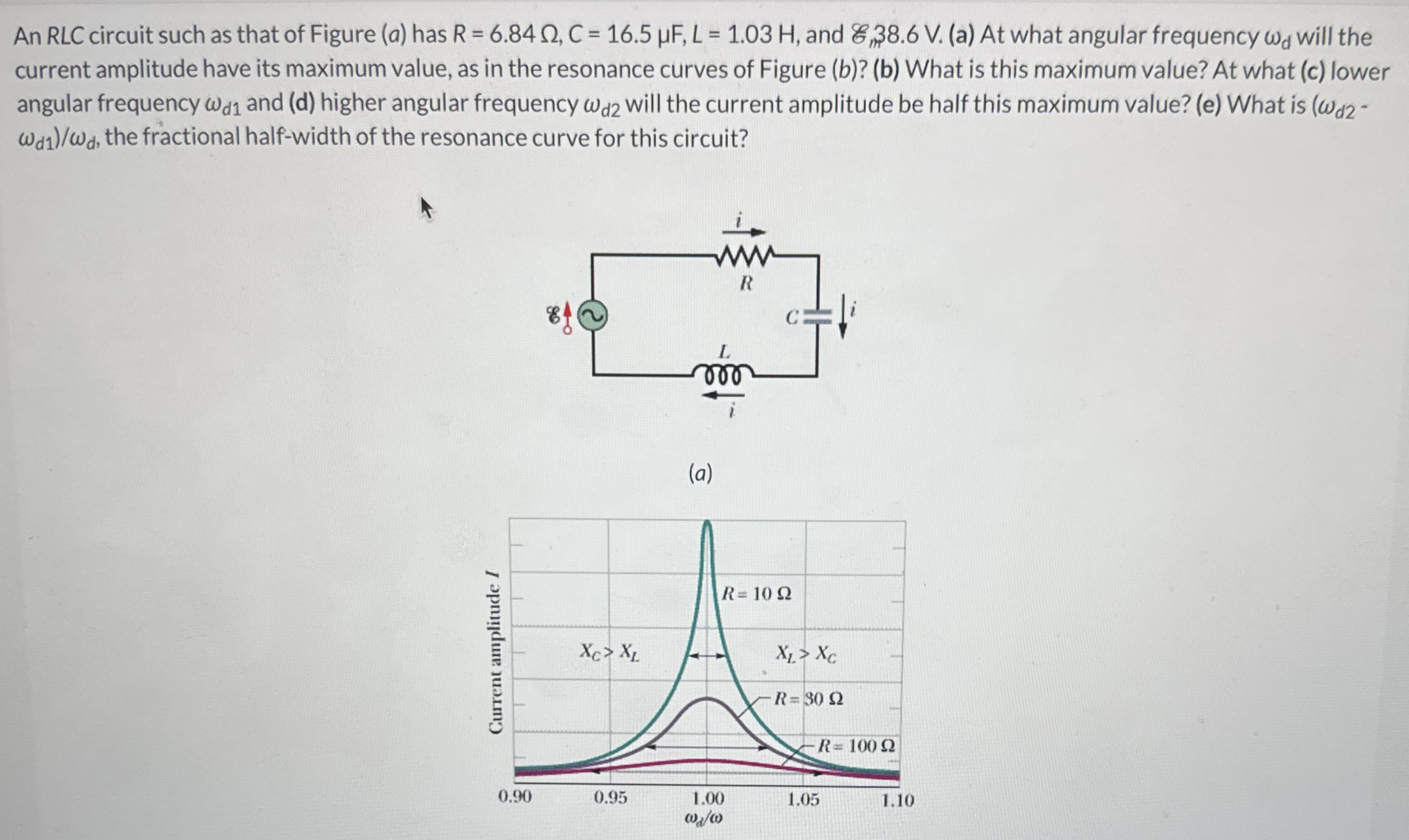An RLC circuit such as that of Figure (a) has R = 6.84 Ω, C = 16.5 μF, L = 1.03 H, and E = 38.6 V. (a) At what angular frequency ωd will the current amplitude have its maximum value, as in the resonance curves of Figure (b)? (b) What is this maximum value? At what (c) lower angular frequency ωd1 and (d) higher angular frequency ωd2 will the current amplitude be half this maximum value? (e) What is (ωd2 - ωd1)/ωd, the fractional half-width of the resonance curve for this circuit? (a)
